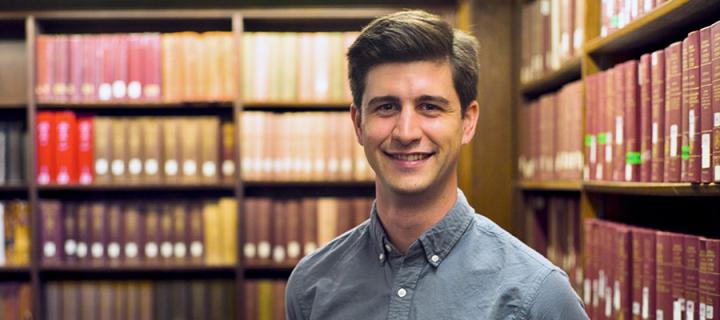Meet our graduates: Ian Kapuza
A Russian Studies and Politics graduate, Ian is now a Foreign Affairs Specialist at the United States’ National Nuclear Security Administration (NNSA).
Originally from Boston, Massachusetts, Ian Kapuza studied in Edinburgh from 2007 to 2011, graduating with an MA (Hons) degree in Russian Studies and Politics.

He is based in Washington, DC, in the United States of America (USA), where he works as a Foreign Affairs Specialist in the Office of Material Management and Minimization at the National Nuclear Security Administration (NNSA).
The Office is responsible for reducing the threat of nuclear weapons proliferation worldwide by managing and disposing of excess weapons-useable nuclear material around the world, an area of nuclear security which has interested Ian since graduation.
He applied for NNSA’s Graduate Fellowship Programme while taking his masters at the Fletcher School of Law and Diplomacy at Tufts University, was selected, and has been there ever since.
Strong cooperation
“My office works closely with Russia to reduce the amount of highly enriched uranium and separated plutonium in civilian use worldwide”, says Ian. “Despite other difficulties in the U.S.-Russian relationship, our cooperation remains strong in this area.”
“My studies in the School of Literatures, Languages and Cultures (LLC), including my year in Russia, have allowed me to support work, negotiations, and other engagement with our Russian-speaking partners around the world.”
In terms of biggest achievements since graduation, “I have contributed to the removal or disposition of hundreds of kilograms of highly enriched uranium, enough for more than a dozen nuclear weapons.”
Mission and colleagues
Asked what inspires him, or keeps him going, Ian says “I wake up excited to go to work every day. Part of that is the mission. Acquiring weapons-usable nuclear material is the most difficult part of making a nuclear weapon or an improvised nuclear device. Every kilogram of highly enriched uranium and separated plutonium that we eliminate makes it that much harder for terrorists or other malign actors to construct a nuclear device.”
“I wouldn’t be able to do this work without my colleagues, who are the other piece of the puzzle. I work with a diverse array of brilliant colleagues and partners at NNSA, around the U.S. National Lab Complex and other government agencies, and in countries around the world. Not a day goes by where I don’t learn something new from them as we work together to reduce the risk of nuclear proliferation.”
Are you interested in Russian Studies at Edinburgh?
Spoken by millions of people in Europe, Central Asia and beyond, Russian is the language of some of the most iconic literary and cultural works in history. Study it with us and you’ll learn the language while exploring its social, cultural and political contexts, including through literature and film.
Find out more about our four-year undergraduate degrees
Related links
Find out more about the NNSA Graduate Fellowship Program [external website]

